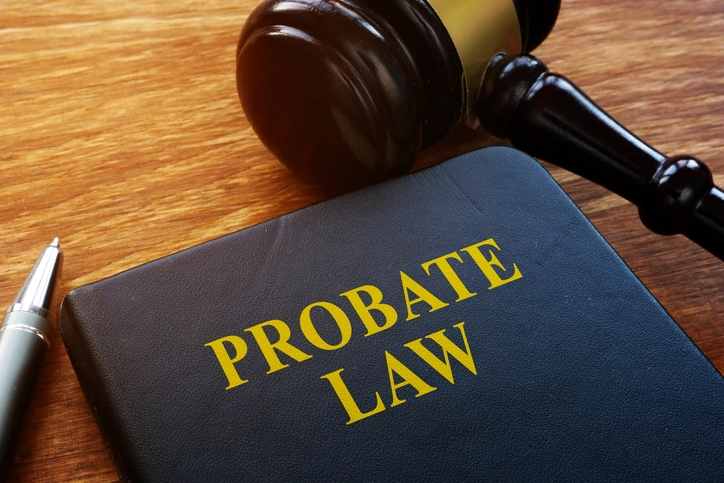Every estate planning attorney should have the primary goal of accomplishing your estate planning needs. The best estate planning attorneys have the secondary goal of avoiding probate.
If you’ve ever had to go through probate for a loved one, you understand why avoiding probate should be a goal for every estate plan. The process is expensive, slow, and emotionally difficult for your family. The average probate in Denton costs over $3,000 per spouse and takes 9 months or more. Additionally, your loved ones must go to a hearing, be sworn in by a judge, and answer difficult questions about you and your estate. After that, a list of all your assets must be filed with the court and made public record while notice of your probate must be published in the local newspapers.
For some, it’s the idea of extra expense after their deaths that sours the idea of probate. For others, it’s the lack of privacy, delay, or heartache for their family. In my 8 years of practicing, I’ve never come across someone who enjoyed the probate process and most wish they didn’t have to go through it at all.
Fortunately, there are several ways to avoid probate in Texas:
- Give away all your property while you’re alive.
- Make your beneficiaries co-owners of all your assets.
- Add payable-on-death beneficiaries on all your assets.
- Create and fund a living trust.
Obviously, some options are better than others, but the sentiment against probate remains. But first, let’s look at the reasons probate may be unavoidable.
Reasons for Probate
Unfortunately, there are several reasons probate may be the only option:
- Your bank requires it.
- Your insurance policies have no beneficiaries.
- Your spouse has special needs.
- You own assets you don’t know about.
Far and away the most common reason for probate is because a bank requires it. When you pass, banks won’t do a thing with your accounts unless a court tells them to. This applies to all financial institutions and accounts – checking, savings, and investment accounts are treated the same in this scenario.
Most people would be surprised to see that their insurance beneficiaries are misidentified or non-existent. This is the case for a large portion of my probate clients even though it’s one of the most avoidable reasons for probate. Be sure to double-check your beneficiaries and review them every year to make sure you have the right people named and not simply your estate.
If you’ve created a special needs trust for your spouse, the IRS requires that trust to be funded via your estate. In other words, your will must be probated to fund a tax- and Medicaid-saving trust for your spouse.
Rarely, a client will come to me because their family member owned property they didn’t even know they owned. This situation usually comes up when someone inherits property from a distant relative, then they pass without having the chance to account for that property in their estate plan.
Give away all your property while you’re alive
Easily the least attractive alternative to probate is to give away all your property while you’re alive. Obviously, you’ll need your property as long as you’re alive and you’ll need to maintain control over your own assets for your long-term care.
If you do decide to take this approach, you won’t have the funds to pay taxes, insurance, medical care, food, gas, etc. Instead, you’ll have to rely on whoever you transferred your property to before any payments can be made. This approach also destroys your homestead exemption and the step-up in basis for property transfers.
The Texas homestead exemption is unlimited and keeps your property taxes low while the step-up in basis protects your beneficiaries from paying capital gains tax on the actual value of your home. Both of which will have extreme tax and liability implications for you and your family.
This approach and the next one both have negative tax implications for your family – everything you transfer to them will be taxed as income, increasing the financial burden on your loved ones unnecessarily.
Make your beneficiaries co-owners of all your assets
Making your beneficiaries co-owners of your assets may seem like a good alternative to outright giving away all your property. But consider the power you’re giving away. Co-owners have the right to use and control all of your property, meaning your co-owners have the right to spend all of your money, sell your property, and use your property for their own benefit.
Additionally, the assets you co-own will be subject to the liabilities of all owners. That means any lawsuits, bankruptcies, and creditor claims of your co-owners can be recovered against your property. Do you really want to pay for the debts of another person?
This approach also destroys the step-up in basis protections that give your beneficiaries extremely valuable tax savings after your death and it has the same income tax burden on your loved ones mentioned above.
Add payable-on-death beneficiaries on all your assets
Payable-on-death designations (sometimes called “beneficiary designations” or “P.O.D. accounts”) on bank accounts can be a very useful tool for avoiding probate. In theory, the person you designate as your payable-on-death beneficiary will be granted access to that account upon your death.
However, in practice, these payable-on-death designations are heavily form-regulated, and each individual bank has different practices. I’ve seen banks refuse to honor these designations because their form changed, their computer system doesn’t recognize the previous form, and one local bank in particular has a habit of flat-out refusing to honor their payable-on-death designations.
This hits at the real problem with designating beneficiaries on your accounts – the only statute in Texas that governs them simply provides a form and has more protections for the bank than the account owners, so the only option is for your family to file a lawsuit on your behalf after your death. This kind of lawsuit may seem open-and-shut, but anytime a bank is involved in litigation, you should be ready for a knock-down-drag-out fight.
Create and fund a living trust
Far and away the best and easiest way to avoid probate in Texas, living trusts are designed from the ground up to avoid probate. A living trust transfers your property immediately upon your death to the people you name without having to ask the court’s permission or file anything into public record. Or, if you desire, a trust can hold on to your assets, invest them, and pay them out slowly over time for things like health, education, maintenance, and support for your family.
The key to utilizing the benefits of a trust is to transfer all your property into the trust while you’re still alive. We make that process easy by giving you letters already written out to your bank with instructions on exactly how to make these transfers into your trust. You can still use and control your property just like you do right now without losing the benefits of the homestead exemption or jeopardizing the step-up in basis.
Trusts have the added benefit of acting like a durable power of attorney – if you were to lose capacity, your trust names a person who has the right and responsibility to use the trust assets for your care.
All the options for avoiding probate in this article come with a high degree of risk except for the living trust strategy. To learn more about the benefits of trusts and how they work, take a look at our living trust information here.
As always, having something in place to plan your estate is better than having nothing. Probate is far more expensive and intrusive if you don’t have a will – every action taken while gathering and distributing your estate must have permission from a judge, meaning your family will spend a lot of time in court.
Of all the strategies to avoid probate in Denton, Texas, the only one I frequently recommend is the living trust. Trusts have become very popular in recent years because they’re no longer just for the wealthy who are trying to avoid taxes. Trusts have become the go-to tool for avoiding probate due to their ease of use, flexibility, and effectiveness.
Schedule an appointment with the estate planning attorneys at Hunter Sargent, PLLC to find out which option is right for you.



